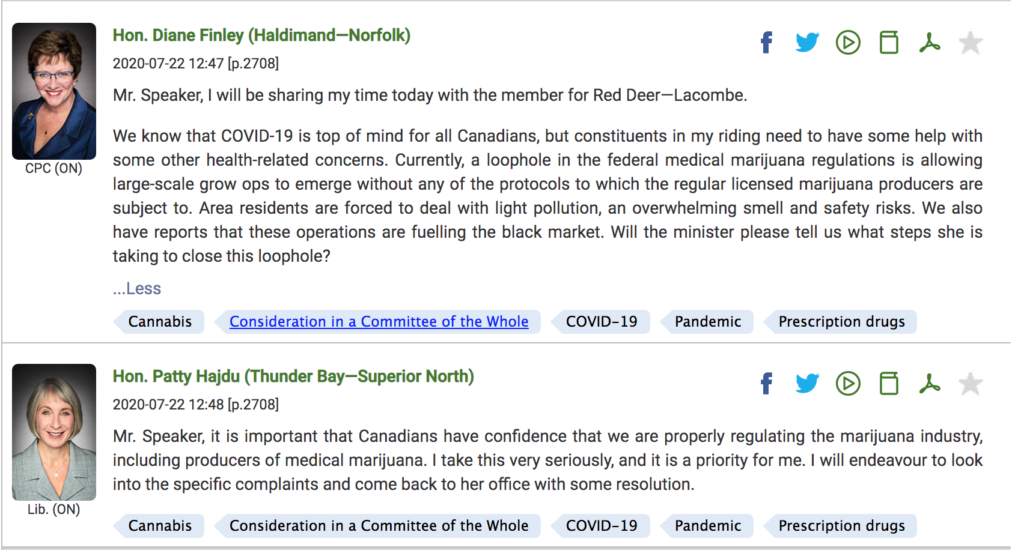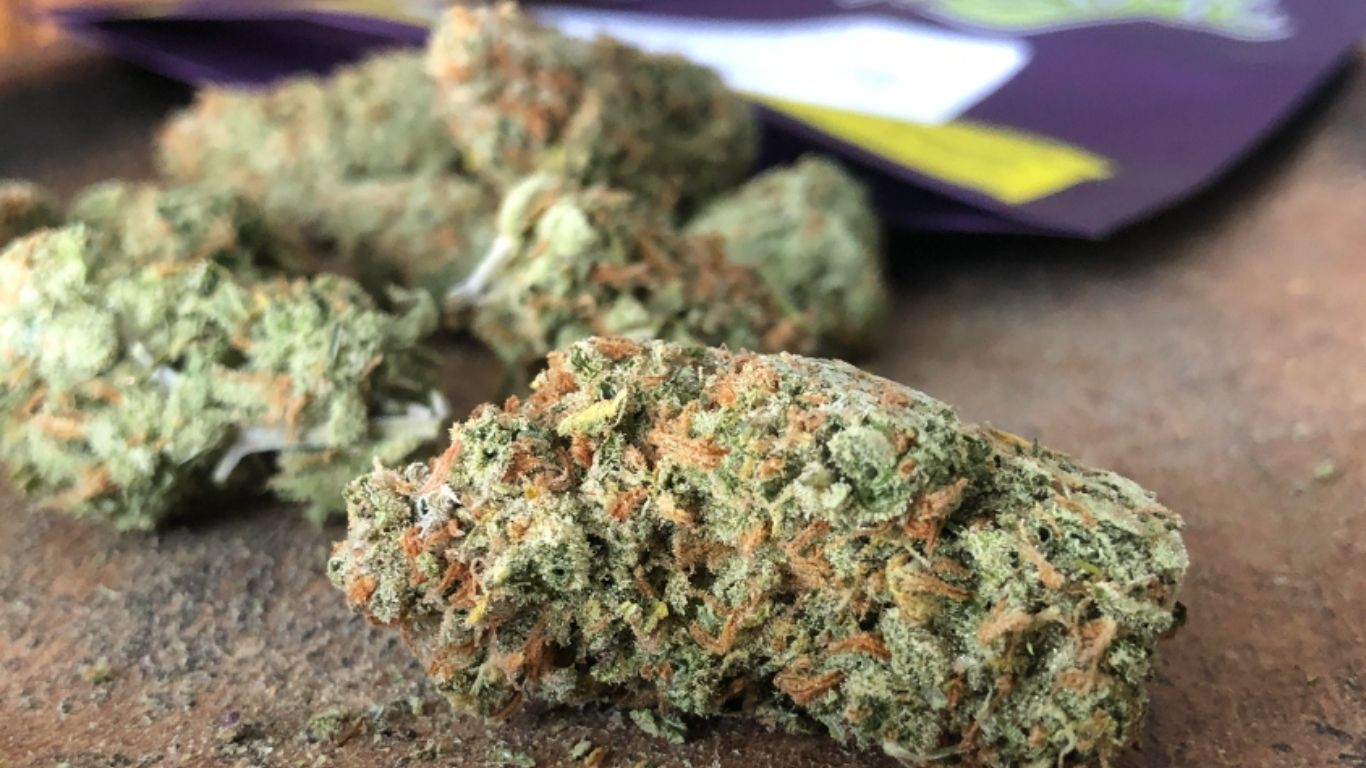
The Federal representative for the riding of Haldimand-Norfolk in southern Ontario asked the Federal Minister of Health what the federal government is doing to address personal and designated medical growers operating outside the boundaries of their medical designations.
Currently, a loophole in the federal medical marijuana regulations is allowing large-scale grow ops to emerge without any of the protocols to which the regular licensed marijuana producers are subject to.
mp diane finley, haldimand-norfolk
Diane Finley, the MP from Haldimand-Norfolk raised the issue in the House on July 22, saying the current regulations create a “ loophole” that large scale growers are taking advantage of. Patty Hadju, the Minister of Health says she will look into the specific complaints.
Said Finley in the House: “Currently, a loophole in the federal medical marijuana regulations is allowing large-scale grow ops to emerge without any of the protocols to which the regular licensed marijuana producers are subject to. Area residents are forced to deal with light pollution, an overwhelming smell and safety risks. We also have reports that these operations are fuelling the black market. Will the minister please tell us what steps she is taking to close this loophole?”
Finley, a Conservative MP, has served six straight terms for Haldimand-Norfolk. The community has expressed concern with the issue of personal and medical growers in the past. An article from this past January said the community is home to “70 unmonitored medicinal cannabis operations”, with many local residents upset with issues like odour or light control.
As farmers retire the ACMPR approval in August 2016 has brought in a wave of property buyers from the GTA that the community and law enforcement suspect may be connected to organized crime.
post media’s ontario farmer, guest columnist
It is also in an area of southern Ontario with many large scale commercial cannabis growers.
“As farmers retire the ACMPR approval in August 2016 has brought in a wave of property buyers from the GTA that the community and law enforcement suspect may be connected to organized crime,” wrote a guest columnist in Post Media’s Ontario Farmer last January. “Leamington, Brant County and the Niagara Peninsula, as areas with greenhouse infrastructure, are dealing with the same issues.”
Managing these types of personal and designated production medical licenses has been a challenge for municipalities ever since introduced under the previous Harper government in the early 2000s.
As recently as this July, police in the neighbouring county of Niagara seized more than 17,000 plants from a large greenhouse operation of this nature that police say was the largest of its kind, with ties to organized crime.
Regional police in 2019 announced 24 simultaneous raids that had occurred in Southern Ontario of growers utilizing these same personal and designated medical cannabis authorizations. A large-scale grow op of this nature generated headlines in 2018 when it was raided by police in Ontario. A similar bust made headlines in 2017 with some 765 plants in a greenhouse operation.
Such licenses exist due to a string of court cases going back to the early 2000s, and affirmed as recently as the Federal Court of Canada’s February 2016 decision in Allard v. Canada, which have affirmed the rights of individuals authorized to possess medical cannabis to also grow their own, or designate someone to do so for them.
Although these licenses are intended for the personal use of those specifically connected to the licence, it is not at all uncommon and has been well documented that growers of all sizes often grow for further commercial distribution under the cover of such medical licensing. Although some claim to be protected under court cases, no such court precedent currently exists.
Some blame Health Canada for not policing plant counts and compliance of home grows, but Health Canada would also require a warrant on anyone’s home if requested, rendering enforcement a logistical challenge, especially with fewer than 100 such inspectors across the country.
Some blame the various provincial colleges of physicians who are supposed to police their own doctors from prescribing very large gram-a-day amounts to medical cannabis patients.
Earlier this year the Saskatchewan College of Physicians and Surgeons levied a $15,000 and disciplinary action against a Saskatchewan doctor found to be profiting from issuing medical cannabis licences in 2018.
Recently, a medical cannabis patient who had been authorized 100 grams a day, had a court reject an allowance for the patient to possess up to 1000 grams in public at a time.
Serving six consecutive terms, Finley was an MP throughout the years the Conservatives were in charge of these types of medical cannabis grows. She was concerned with them as far back as 2005, blaming the then Liberal government, but raised no such concerns with her party was in power from 2006-2015.













